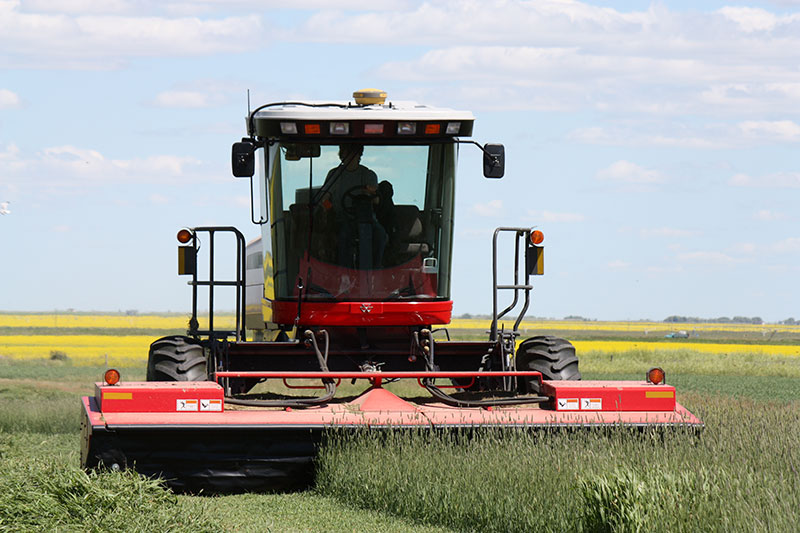
Timothy seed is most produced in Western Canada, specifically Alberta and Manitoba. Although much of the product is used throughout North America, some varieties are grown and shipped to international markets. Timothy hay readily produces the seed and it can be harvested for seed as well as for forage.
The price of timothy seed is affected by the supply of seed producers in western Canada and the market demand. International demand for Canadian timothy seed comes mostly from the USA and European countries. Seed prices are also affected by the yield of timothy hay produced and sold for forage. In years where overall hay production for forage was low due to weather conditions or other factors, the fields can still be harvested for the seed.
Timothy Seed in the Marketplace
Growers of Canadian timothy hay and seed have several options for marketing their crops. Canadian growers can choose to sell into the cash market or grow under contract from an international buyer. Alberta Agriculture and Rural Development mentions two options for contracting timothy seed: forward priced or production contracts.
Forward pricing is when the grower is contracted to grow and deliver a certain amount and grade of seed at a specific date. Depending on the contract, the seller could pay the shipping and handling costs. Then the seed company will pay a certain price depending on the quality and grade of timothy seed.
A production contract is signed between a grower and seed company when the grower agrees to produce a specific variety of seed from a certain growing area. A specific price is set, but if the seed does not meet the quality as outlined in the contract upon delivery the price to the grower can be reduced. Most production contracts are for certified production. That means that a field inspection is completed and the timothy seed is registered and certified. One benefit to Canadian growers entering into a production contract is that they are guaranteed a minimum price for their crop, offering a small amount of protection in a sometimes unpredictable marketplace.
Varieties of Timothy Seed

There are many varieties of timothy seed on the marketplace. The most common variety grown by Canadian producers is Climax, which was developed by Agriculture and Agri-Food Canada. Varieties that are more commonly exported to Europe are usually grown under production contract with seed companies.
Here is a list of available timothy seed varieties grown in Western Canada: Alma, Basho, Bottnia II, Bounty, Champ, Climax, Comtal, Hokuo, Itasca, Rasant, Richmond, Tiiti, Tiller, and Timfor.
Important Factors for Growing Timothy Seed
Field selection is very important and must meet a number of requirements. The field must be a certain distant from other fields growing different timothy varieties and that are free of perennial weeds. Timothy hay is tolerant to flooding so it will actually grow well in a poorly drained field. It’s also important to know the history of herbicides previously used on the field and if any remaining residues will affect the crop.
Timothy is a small seed and must be planted shallow into a firm seedbed at about two pounds of seed per acre.
Establishing stand, row spacing, and fertility will help growers decide on in-crop herbicides and pesticides. Timothy hay is a very sensitive crop and herbicide selection must be done considering the weeds present, the amount of stress the crop is already under, stage of the timothy and rotation of herbicides.
Fortunately, well established timothy stands are not affected by insect pests. Newer stands might could see grasshoppers, wireworm or cutworms most likely because these pests were already in the field when it was planted. Keeping a close eye on moisture levels will help the new crop tolerate damage created by feeding insects.
Sources:
http://www.brettyoung.ca/images/file/BY_Seed%20Prod%20Guide.pdf
http://www1.agric.gov.ab.ca/$department/deptdocs.nsf/all/agdex8696?opendocument
http://seedgrowers.ca/seed-growers/regulations/




